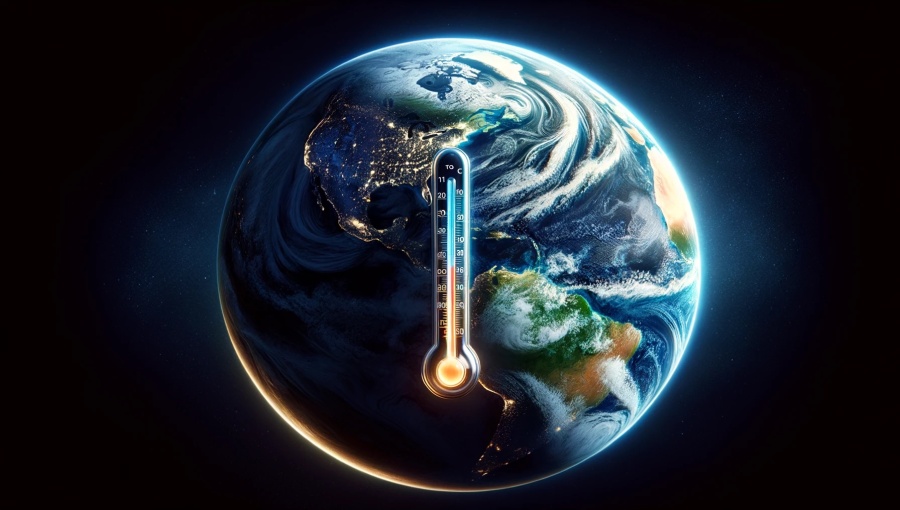NEO: EU green ambitions under siege amid Red Sea crisis, Russian aluminium ban fears

The EU has long positioned itself as a global champion of green energy and the world’s battle against climate change. No other region in the world has stricter environmental legislation or has done as much to promote renewable energy sources. Now, the EU’s commitment to the Green Deal is being rigorously tested in the wake of the Ukraine conflict and the anti-Russian sanctions it triggered, as well as the recent escalation in Israel and the Red Sea region.
These developments are already reshaping the continent’s approach to climate change, particularly in the context of its traditional reliance on Russian aluminium, widely considered one of the most environmentally friendly options in the European market, especially compared to its less green alternatives from Asian markets.
Despite geopolitical upheavals, most EU countries have actually intensified their renewable plans since 2020. The energy and COVID-19 crises, along with the war in Ukraine, have spurred the green transition in Europe rather than derailing it. EU countries’ climate policies demonstrate a significant shift towards renewable energy: it is now expected that 63% of EU electricity will be produced from renewables by 2030, up from 55% originally envisaged under the previous plan in 2019. This shift would mark a substantial decrease in EU fossil fuel-based power generation, projected to drop to 595 terawatt hours in 2030 from 1,069 TWh in 2021.
The ambitious green transition is not a one-way street for Europe, however, as the movement is facing a pan-European challenge. Countries like Italy, the United Kingdom and the Netherlands have shown signs of pushback against various EU initiatives aimed at greening the economy. This resistance, termed “greenlash,” is driven by factors ranging from economic pressures to political dynamics. Italy, for example, has sought to water down certain EU directives. In the Netherlands, the rise of the BBB party, opposing the government’s environmental policies, signifies growing discontent with the green agenda. At the same time, Britain’s recent fossil fuel projects have also raised questions about its commitment to climate goals.
With Europe on the brink of recession, it is increasingly hard to “sell” costly green initiatives to the dissatisfied voters who are already dealing with the daily pressures of inflation and rising geopolitical risks. The sanctions already imposed on Russia, historically one of Europe’s key trade partners, for its role in the Ukraine crisis have severely diminished bilateral commerce and to a large degree backfired against European producers and consumers.
While the Ukraine crisis is quickly approaching its two-year mark, the new geopolitical hotspot in the Red Sea is adding additional pressure on the strained European economy. The halt of navigation in what is one of the world’s most important transportation routes, representing roughly 12% of global container traffic, means increased time (by adding about ten days to trip duration if an alternate route around Africa is taken) and costs for consumers. For Europe this translates into higher import costs for such key industrial materials as aluminium, as well as for energy. Longer travel times also mean more environmental impact for EU-made products, undermining the continent’s green economy goals.
Russian aluminium, considered a greener option due to its lower carbon footprint, still plays a significant role in Europe’s industrial and environmental strategies. The potential sanctioning of Russian primary aluminium – long favoured by some EU politicians and pundits despite strong economic risks – poses a significant dilemma amidst these crises. Due to high energy and labour costs, the EU’s own aluminium production is in steady decline and now accounts for only about 11% of its total demand.
Multiple sanctions introduced against the Russian economy have done nothing to force Russia to change its course on Ukraine. When considering whether to expand them to also include a ban on aluminium EU policymakers must be fully aware of the environmental impact of losing a key source of green aluminium that cannot be easily replaced.
This underscores the importance of strategic foresight in policymaking to ensure that Europe’s green ambitions remain robust and responsive to an ever-changing global landscape. As Europe navigates through these turbulent times, the balancing act between maintaining its green agenda and responding to geopolitical developments becomes more challenging. The decisions made in the coming months will not only shape Europe’s environmental policies but also reflect its resilience and adaptability in the face of global challenges.
This article first appeared in New Economy Observer (NEO), a digital publication covering the intersection between finance and social responsibility, with a special focus on emerging markets. It offers news and analysis on major issues shaping the new global economy, including climate change and renewable energy, sustainable development, e-commerce and tech innovation, and the future of work.


Follow us online